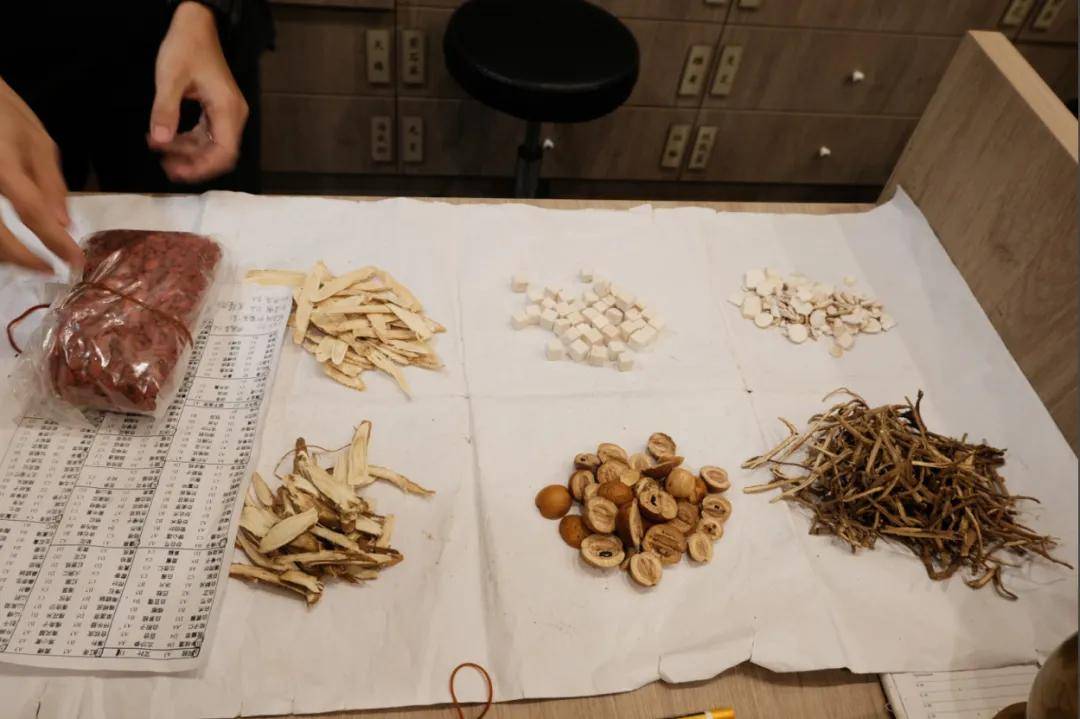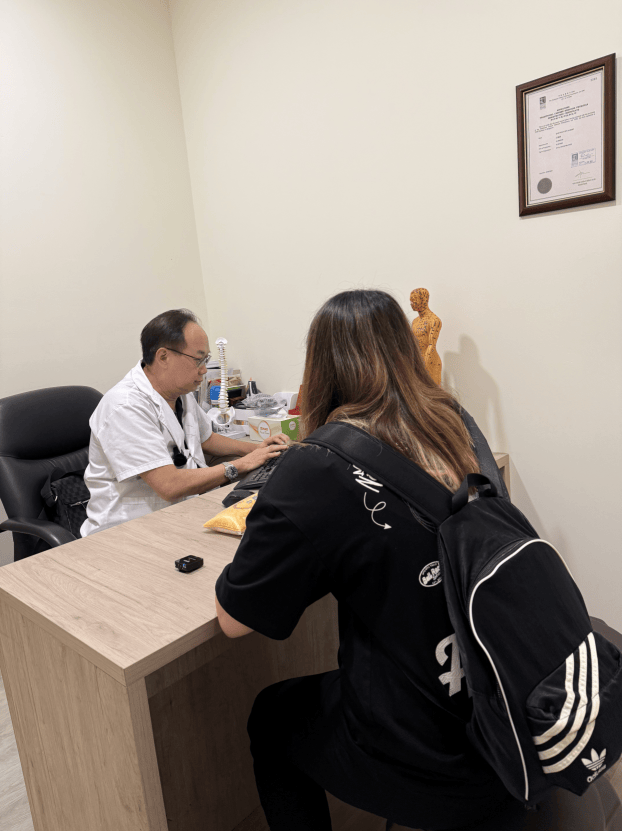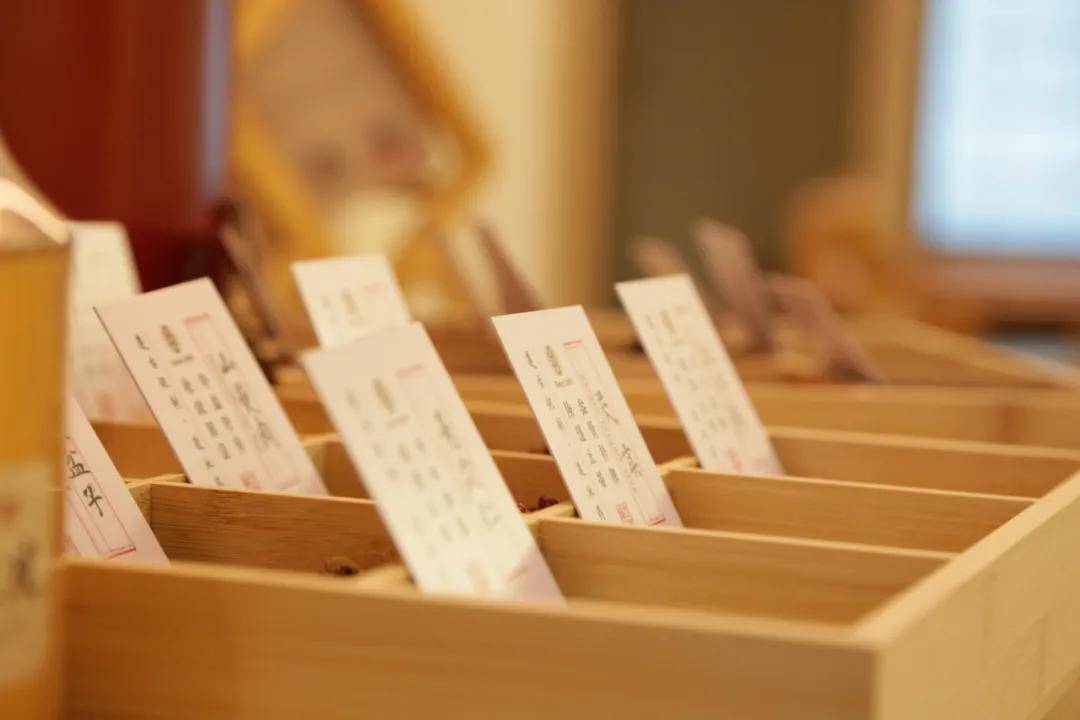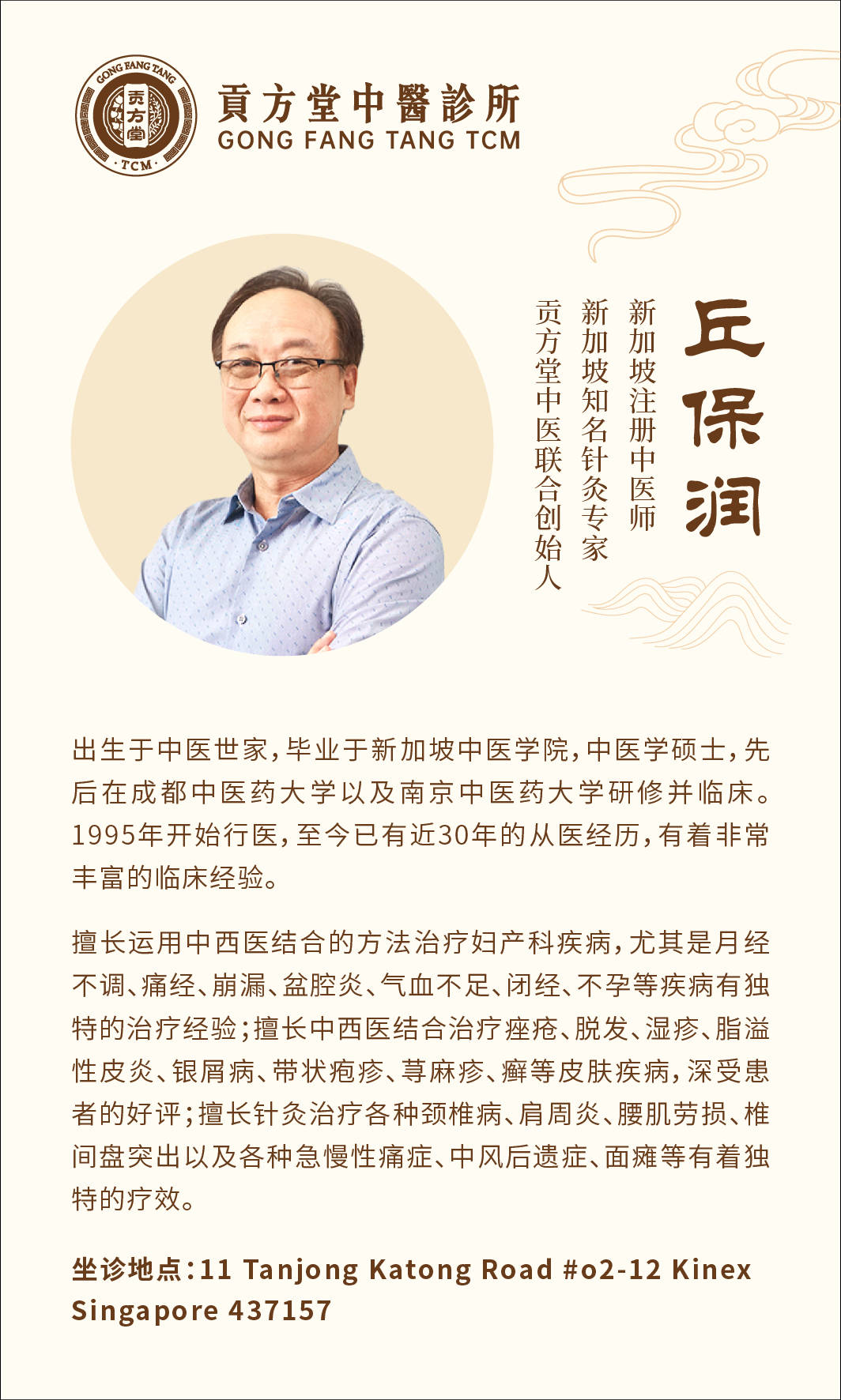
Breast cancer is globally recognized as a highly treatable condition. In Western medicine, patients detected at an early stage often receive effective treatment. Traditional Chinese Medicine (TCM), however, has had effective treatment methods for early-stage breast cancer for centuries.
TCM treats cancer primarily by strengthening the body's vital energy (扶正固本) and applying syndrome differentiation (辨证施治). Based on the patient's constitution and condition, suitable herbal formulas are selected to achieve therapeutic goals—supporting healthy qi, dispelling pathogenic factors, balancing yin and yang, enhancing immunity, and improving resistance.
Dr. Que Poh Yuen Albert, a TCM expert from Singapore's Gong Fang Tang TCM Clinic, explains that ancient physicians meticulously summarized the causes and symptoms of breast cancer.
Pathogenesis: Liver qi stagnation leads to phlegm formation, impairing spleen function. Spleen deficiency fails to transform dampness, resulting in stubborn phlegm accumulation that obstructs qi and blood flow. Over time, this may form masses.
Symptoms:
Breast lumps with unchanged skin color, hard texture, and indistinct borders.
Emotional depression, irritability, chest tightness, or hypochondriac distension.
Possible premenstrual breast or lower abdominal distension.
Thin tongue coating, wiry pulse.
Pathogenesis: The Chong and Ren meridians (originating from the uterus) regulate qi, blood, and organ functions. Kidney-liver deficiency, spleen-stomach weakness, external pathogens, qi stagnation, blood stasis, or damp obstruction disrupt this balance, causing yin-yang imbalance or qi blockage.
Symptoms:
Dizziness, tinnitus, hard breast lumps, irregular menstruation.
History of premenstrual breast pain.
Infertility or multiple miscarriages.
Pale tongue, thin coating, wiry-thin pulse.
Pathogenesis: Weak healthy qi fails to combat pathogens, leading to intense toxin accumulation, meridian blockage, and severe pain. This indicates a critical stage.
Symptoms:
Ulcerated, cauliflower-like breast mass with persistent bloody discharge.
Excruciating pain due to meridian obstruction.
Pale complexion, emaciation from qi-blood deficiency.
Pale-red tongue, deep-thin-weak pulse.
Conclusion:
Breast cancer (乳岩) is closely linked to emotional factors. Chronic depression, suppressed anger, or irritability damage the liver and spleen, causing qi stagnation, phlegm-blood stasis, and meridian blockage—eventually manifesting as disease. Thus, healing the mind is as vital as treating the body. When psychological resilience wanes, the physical body suffers most.

Astragalus (Huangqi) and Ginseng (Renshen) for "Strengthening Vital Energy and Rooting the Foundation" (扶正固本)
Astragalus (Huangqi):
Tonifies qi, strengthens the body's defensive energy (wei qi), and enhances immunity.
Nourishes deficiencies in the five zang organs.
Contains polysaccharides that promote antibody production and inhibit cancer cell division.
Often used as an adjunct therapy in cancer treatment to improve constitution and reduce side effects of chemotherapy/radiotherapy.
Ginseng (Renshen):
Tonifies qi, nourishes blood, replenishes yin, and promotes fluid production.
Contains ginsenosides, which enhance immunity and mitigate chemotherapy/radiotherapy side effects in cancer patients.
Improves quality of life for cancer patients while suppressing cancer cell growth and proliferation.

